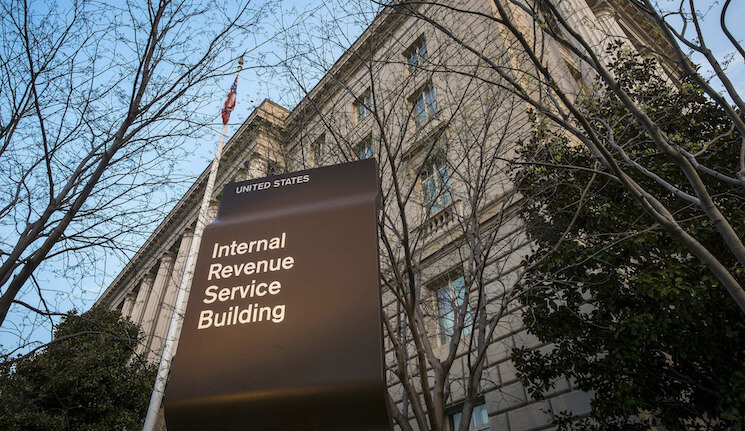Who pays U.S. taxes on inheritances?

Greg Mankiw, a Harvard University economist and Chairman of the Council of Economic Advisers for President George W. Bush, argues in a piece for The Upshot of the New York Times that the U.S. estate tax is a suboptimal way to tax wealth. Mankiw’s concern is that the tax violates “horizontal equity” by placing a similar tax burden on people who behave in very different ways. He presents an example of two couples, both of whom sell a family business for the same amount, but one couple spends all their proceeds and the other saves most of it to give to their children. Under the current federal tax system, both couples would end up paying the same amount of taxes, according to Mankiw, even though they ended up doing wildly different things with the money.
This example, however, assumes that the frugal couple who bequest their savings to their children end up paying the estate tax. If that were true, then the estate tax should be a larger part of a more effective tax system as the behavior impact of taxation on dead people is likely to be very small. But as Matt Levine at Bloomberg View points out, “We could fund the government with a lovely, efficient, non-distortionary system of taxing only the dead, except—and this is another key point—the dead don’t have any money.” The tax ends up getting paid by the heirs of the estate. Of course, the estate tax will influence how a person sets up their estate before they die, but the incidence of the tax will fall on those who end up receiving it.
This is why it might make sense to change the focus of taxes on inheritance from the estate to the heirs. Right now, an estate is taxed based the amount of money in the estate, regardless of how many heirs there are to the trust. But there are proposals to change the taxes on pass-down wealth so that the tax becomes an inheritance tax. In other words, the tax would be on the size of the wealth transfer a person receives and the tax rate would be decided by the person’s income bracket. Such a proposal comes from Lily Batchelder, of the New York University School of Law. This change would make clear who is really being taxed, shifting the burden onto high-income households that are inheriting large amounts. And, because it considers the economic status of the individual (or individuals) inheriting the estate, it also means that it could end up reducing the tax burden for lower-income households with larger inheritances (though this may not be a large group).
Mankiw’s example also assumes that the assets that lead to the wealth being passed along will be sold and taxed before death. But that’s often not the case, which leads to a good amount of inherited wealth not being taxed. Assume (as Mankiw does) that two couples who run small businesses are about to retire and sell their companies. The first couple, the Smiths, sell the company, pay the taxes on the gains from the increased value of the company, and pass along the proceeds to their heirs.
The second couple, the Jones, tragically die before they can sell the company and ownership passes to their heirs. Their heirs eventually sell the company, but the taxes they pay are only on the gains from when they get the company—not from when their parents founded the firm. The income created from the appreciation of the company before it gets passed on never gets taxed. This “stepped up basis” (in tax parlance) seems like a reform that could be made to the estate tax as well.
The current system for taxing capital in the United States could use quite a bit of changes, but the idea that inheritances shouldn’t be taxed due to concerns about horizontal equity seems strange. A concern for equity might suggest that policymakers change the form of certain wealth taxes, but not their wholesale elimination.
